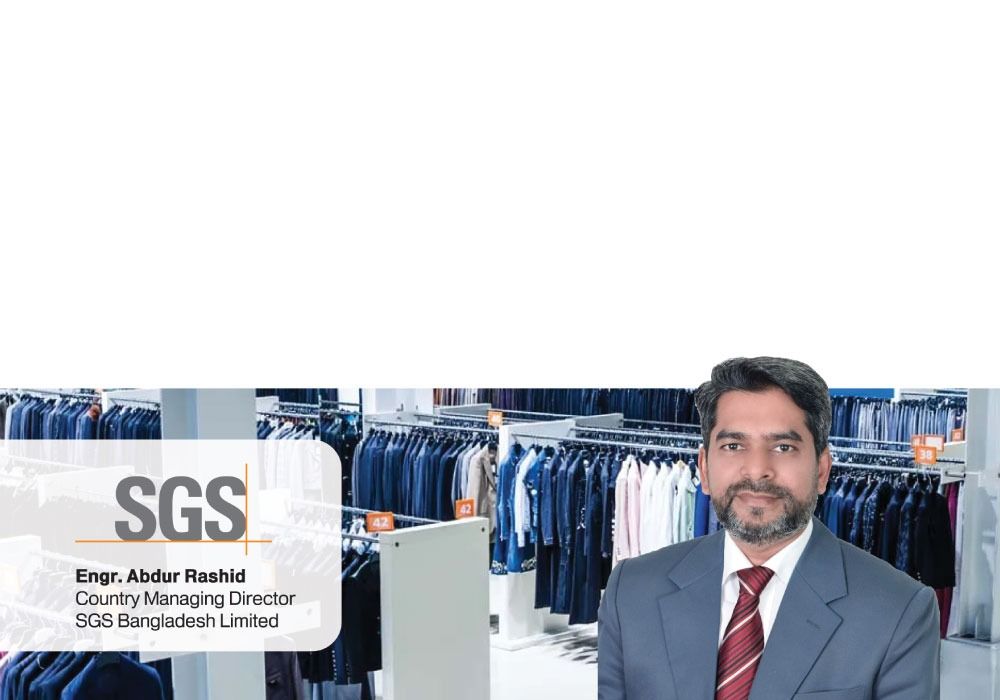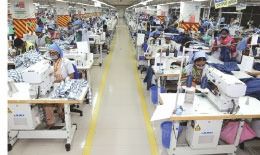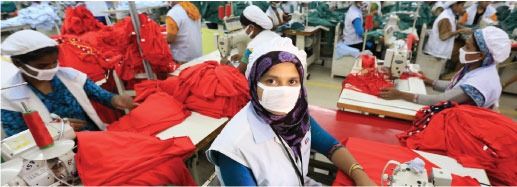- info@ficci.org.bd
- |
- +880248814801, +880248814802
- Contact Us
- |
- Become a Member
- |
- |
- |
- |
- |

Bangladesh has emerged as a significant player in the global garment industry, securing its position as the second-largest garment exporter worldwide. The country's remarkable journey from economic struggles to becoming a key player in the textile and apparel sector is a testament to its resilience and adaptability.
The roots of Bangladesh's garment industry can be traced back to the 1970s, a period when the country was grappling with the aftermath of its Liberation War and the challenges of establishing a stable economy. Initially, the industry was primarily focused on meeting domestic demand, with limited international exposure. However, a series of economic reforms and strategic decisions enabled Bangladesh to enter the global market.
 The country's high population density and competitive wage rates attracted international apparel brands and manufacturers seeking to optimize production costs. This advantage allowed Bangladesh to offer affordable clothing to consumers worldwide, fostering sustained demand for its products.
The country's high population density and competitive wage rates attracted international apparel brands and manufacturers seeking to optimize production costs. This advantage allowed Bangladesh to offer affordable clothing to consumers worldwide, fostering sustained demand for its products.
In the early 1980s, the Bangladesh government issued licenses for the duty-free import of garment machinery to manufacture export products. Consequently, the number of garment factories in Bangladesh grew rapidly. In 1984-85, there were 632 factories, whereas in 2024, this number has increased to approximately 4,000.
Industrial revolutions have consistently driven advancements in industries and improved human lives. The Fourth Industrial Revolution (4IR) is reshaping traditional operational methods through automation, artificial intelligence, 3D printing and knitting, robotics, intelligent manufacturing, and augmented reality. In the apparel industry, these innova- tions are influencing consumer trends and increasing competition. To maintain and expand its share in global garment exports, it is imperative to embrace and adopt 4IR technologies for Bangladesh.
The ready-made garment (RMG) sector in Bangladesh has made significant progress in integrating sustainability and environmental responsibility. The country now boasts 230 LEED (Leadership in Energy and Environmental Design)-certified green factories and is home to 61 of the top 100 highest-rated LEED-certified factories in the world.


Since its inception in the late 1970s, the 100% export-oriented RMG industry has witnessed remarkable growth. Exports of RMG products have increased from USD 40,000 in 1978-79 to USD 47.38 billion in 2023-2024. The industry provides employment to nearly 5 million workers, the majority of whom are women from rural areas, significantly contributing to social and economic development. The livelihoods of nearly 20 million people in Bangladesh are directly or indirectly linked to this sector.
As of 2024, the garment industry contributes approximately 11% to Bangladesh's GDP and accounts for around 82% of the country's export revenue. This sector's ongoing growth and commitment to innovation underscore its critical role in shaping Bangladesh's economic future.
In parallel to the growing export industry of Bangladesh, SGS Bangladesh began its quality and sustainability journey around 1974. Following liberation, the company was uniquely positioned to provide the necessary expertise was crucial to the nation's economy. Over the past five decades, SGS Bangladesh has established itself as a trusted name with 50 years of prosperous journey in the country. It offers a comprehensive range of services, including Testing, Inspection, Certifications and social compliance assessments, Technical assistance for manufacturers, traders, and retailers in Softlines, Hardlines, Food, and Industrial Services.
 SGS Bangladesh's state-of-the-art laborato- ries provide testing services for various commodities such as textiles, garments, home textiles, leather goods, ceramics, hard goods, electronics, environmental samples, agri-food products, water, and many more. These labs are staffed by over 700 dedicated profession- als, including chemists, engineers, environmen- talists, and marketers, ensuring high-quality services and support for the nation's growing industries.
SGS Bangladesh's state-of-the-art laborato- ries provide testing services for various commodities such as textiles, garments, home textiles, leather goods, ceramics, hard goods, electronics, environmental samples, agri-food products, water, and many more. These labs are staffed by over 700 dedicated profession- als, including chemists, engineers, environmen- talists, and marketers, ensuring high-quality services and support for the nation's growing industries.
SGS Group was founded in Rouen, France, by Henri Goldstuck in 1878. During the mid-20th century, the company began to diversify, offering inspection, testing, and verification services across various sectors, including industrial, minerals, oil, gas, and chemicals. Today, SGS is a globally recognized leader in testing, inspection, and certification services. Its reputation as a benchmark for sustainability, quality, and integrity is well-established. Wherever you are, whatever your industry, SGS experts worldwide provide specialized solutions to make your business faster, simpler, and more efficient.
The company is committed to increasing sustainability through an integrated leadership approach. Its stakehold- ers-employees, suppliers, investors, customers, governments, industries, consumers, communities, and the planet-are the ultimate beneficiaries of this effort. To evaluate its success in creating societal value, SGS is in the process of developing an innovative impact valuation model, which will quantify its contribution to society.
The brand promise-"when you need to be sure"-underscores SGS's commitment to trust, integrity, and sustainability, enabling businesses to thrive with confidence.





